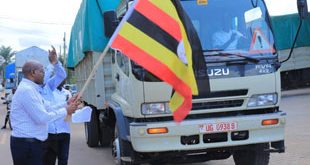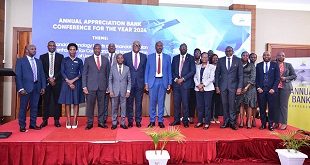
Kampala, Uganda | THE INDEPENDENT | Uganda has demonstrated commendable progress in its ongoing effort to combat human trafficking, with the government reporting an increase in investigations and prosecutions with a significant number of convictions. According to the latest annual report on human trafficking, released by the U.S. Department of State, the number of incidents related to human trafficking significantly increased in 2022 compared to the previous years.
“In 2022, the government reported investigating 1,200 incidents of human trafficking, a significant increase compared with 421 incidents in 2021. Of the 1,200 reported incidents of human trafficking, at least 526 involved exploitation in Uganda and at least 63 involved exploitation abroad; the remaining incidents involved unspecified forms of trafficking,” the report reads in part.
The report shows that the government initiated prosecutions against 728 suspected traffickers in 589 cases in 2022, compared with prosecuting 537 individuals in 403 cases in 2021. Of the cases investigated, 338 were related to sex trafficking, 173 to labor trafficking, and 78 to unspecified forms of trafficking.
Notably, at least 63 incidents involved exploitation abroad, underscoring the importance of enhancing protections for Ugandan trafficking victims exploited in foreign countries. It is also indicated that courts convicted 73 traffickers, which is a rise from the 30 convictions recorded in 2021. These convictions covered a range of offenses, including child sex trafficking, child labor trafficking, adult sex trafficking, and adult labor trafficking.
The report comes at a time when Derrick Kigenyi, the deputy national coordinator in the Internal Affairs ministry reports that they have rescued at least 25 Eritrean and Ethiopian nationals have been from alleged traffickers in two separate operations at Entebbe airport and the Busia border point.
“We established that five of the 17 Ethiopian were trafficked earlier and kept in Namasuba for weeks. The other 12 came through a porous border at Busia and were connected to the five. The whole group proceeded to Entebbe airport but they could not explain how they entered Uganda,” Kigenyi said adding that these were Ethiopians en route to Beirut and Lebanon. Besides being used as a transit point country, the report indicates that foreign victims from Burundi, Ethiopia, Eritrea, India, Iraq, Jordan, Kuwait, and Saudi Arabia are exploited in Uganda.
“Traffickers pose as recruitment agencies to facilitate the placement of former trafficking victims, primarily from Burundi, by falsely advertising employment in the Middle East; instead, traffickers often exploit these women in Uganda before transporting them to Kenya for further exploitation. Traffickers exploit children from neighboring East African countries, including Kenya, Rwanda, and Tanzania, in labor trafficking, primarily in agriculture and domestic work, and sex trafficking in Uganda,” the report added.
As reported over the past five years, the report reaffirms that human traffickers exploit domestic and foreign victims in Uganda, and traffickers exploit victims from Uganda abroad. “Traffickers exploit Ugandan adults and children in labor trafficking in various industries, including agriculture, fishing, mining, street vending, hospitality, and domestic work,” the report reads in part adding that traffickers increasingly use local radio and social media to advertise fraudulent job opportunities in Kampala to lure adults and children from rural areas into exploitative situations.
However, it further indicates that the government has undertaken measures to improve the ethical recruitment of migrant workers with efforts to investigate and suspend recruitment companies involved in fraudulent and exploitative activities and expand pre-departure training for migrant workers. Despite the progress made, the report emphasizes areas that require immediate attention.
These include but are not limited to giving access to adequate services for certain victims, particularly adult males and individuals in rural areas, remaining limited, setting up short-term shelter and long-term housing for trafficking victims, and increasing budget allocations. Another significant concern is the lack of victim-witness assistance policies, potentially hindering investigations and prosecutions.
Law enforcement officials’ failure to adopt a victim-centered approach in criminal proceedings could discourage victims from actively participating in trials. In November 2022, the Director of Public Prosecutions, Justice Jane Frances Abodo said that one of the challenges they are facing while dealing with trafficking in persons in Uganda is that it is diverse and complex, and it thrives mostly out of sight and often spans over multiple jurisdictions, both internal and external, use of technology, making detection and enforcement difficult.
Additionally, she observed that the methods for identification, investigation, and prosecution of trafficking persons in Uganda are relatively new, as anti-trafficking stakeholders push towards full implementation of the Prevention of Trafficking in Persons Act.
****
URN
 The Independent Uganda: You get the Truth we Pay the Price
The Independent Uganda: You get the Truth we Pay the Price


